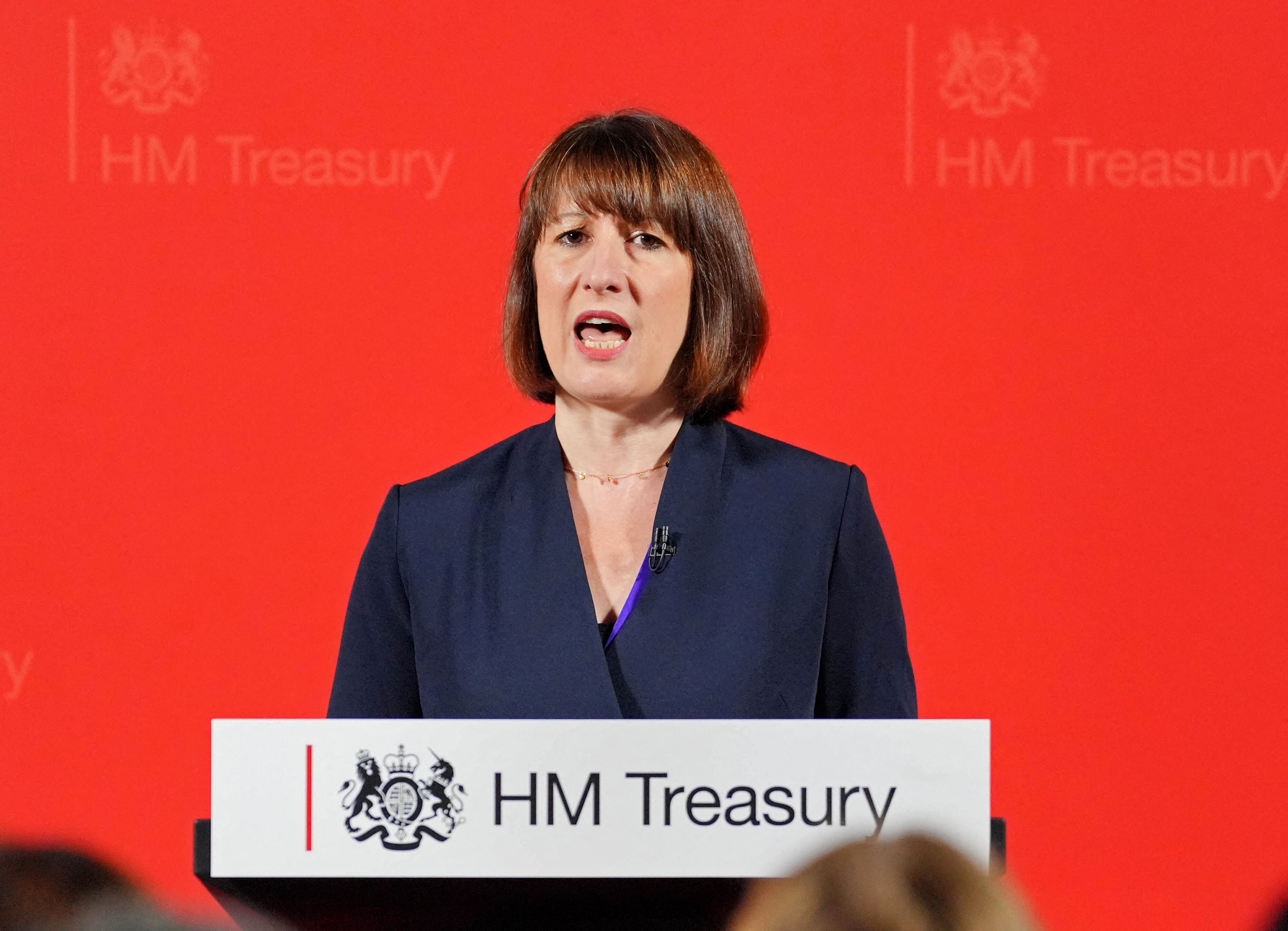A three-point plan for how we grow the British economy
If we don’t get our economy growing, then we are saddling our children with an impossible future, writes David Thomas

I became a teacher because I wanted the next generation to be better off than my own. But, unless we have a radical change, this currently looks unlikely to happen.
Let’s consider the facts: disposable income, in real terms, has been flat for a decade. Output per hour worked – the thing that determines wages – hasn’t meaningfully increased since 2008. We are not, as a country, getting any richer.
But we need to spend a lot more money. There has been a 56 per cent increase in the proportion of people in the UK aged 65 or older since 2010. This is expensive. Spending on older people is forecast to rise from 10 per cent of GDP to 21 per cent of GDP over the next half-century. We don’t have 11 per cent of GDP going spare.
The Centre for Policy Studies estimate that, to maintain current entitlements without increasing taxes, the economy will need to grow at 2.9 per cent a year for the next 50 years. It has not been near this for the last quarter of a century.
This is the social justice issue of our time. If we don’t get our economy growing, then we are saddling our children with an impossible future. They will have to work even harder to provide benefits for us that will be unattainable for them. If we want the next generation to stay just as well off as we are now, there is a mountain to climb. If we want them to be better off, it is even higher.
I run a charity working to raise the next generation of mathematicians, especially by supporting children from less advantaged backgrounds. I believe that this new generation can bring about a new age of innovation and entrepreneurship and revive our economy.
And while the public and parents back the importance of maths – 80 per cent think that maths is important for the future of the economy – I know that what we’re doing isn’t enough. Other problems need tackling:
Young people are blocked from making the most of their best years
Young people cannot settle and establish families in places where they can be successful. Home ownership among 25-34 year olds has almost halved since 1989. House prices were 3.5 times earnings in 1997. They are now 8.3 times earnings. Houses are unaffordable for all but the highest earners or the highest inheritors.
Prices are highest and “nimbies” are fiercest in the most productive places. But house prices are just one reason people are having to wait longer than ever to start a family. Childcare is too expensive and too hard to find, not least because we’ve regulated childminders almost out of existence.
Businesses can’t grow
Businesses can’t afford to make things. The industrial price of electricity is 3.7 times higher today in real terms than it was in 2004. Electricity in the UK is three times more expensive than in the US.
Even if they could, they can’t build what they’d need. If you want to build a data centre on scrubland next to a major motorway junction, then it gets blocked. If you want to benefit from infrastructure, like a new bridge, road or railway, you have to wait decades.
Climate progress is stalling
The route to decarbonising means switching from conventional fuels to zero-carbon electricity. We have to radically increase our zero-carbon energy generation, and rebuild our grid infrastructure to be able to handle this extra load. However, any attempt to build renewable energy generation or add grid capacity is met with fierce opposition from an array of interest groups.
Government is impotent
Our governments haven’t been fixing these things, because they don’t do anything. Decision-making has been gradually outsourced to external agencies. The Department for Culture, Media and Sport doesn’t decide what happens in culture, media and sport – Arts Council England, Historic England and Sport England do. This means that even if ministers want to make things better, they often don’t have the decision-making power to do so.
And the government doesn’t actually do things anyway. It procures them. See the Department for Education, which procured everything from getting eight people to mentor children with poor school attendance to project managing the rollout of its own SEND Improvement Plan. And this procurement often goes wrong.
What’s to be done?
Changing course means taking some bold steps. We need to overhaul the planning system, with a bias in favour of green development and a rebalance towards the interests of future generations. Bluntly, our children’s futures are more important than someone’s nice view.
We need to restore power and accountability to government ministers, whose careers can rise or fall based on what they achieve for the country. No more outsourcing difficult decisions to unaccountable and bloated quangos.
And we need every arm of government to be part of the growth effort to raise per capita economic growth – make it the top priority of every permanent secretary and publicly hold them to account. We must stop slowing our economy to appease interest groups.
“You can wake a man who’s sleeping, but you can’t wake a man who’s pretending to be asleep.” Who? John Hoskyns, Thatcher’s political secretary, on the 1970s establishment’s denial about Britain’s problems.
But you knew all this, right? So – are we sleeping, or pretending to be asleep?
David Thomas is the CEO of Axiom. He has worked in government as a senior ministerial advisor in the DfE and was a headteacher of a Norfolk school. He was also a Conservative parliamentary candidate in the general election






Join our commenting forum
Join thought-provoking conversations, follow other Independent readers and see their replies
Comments